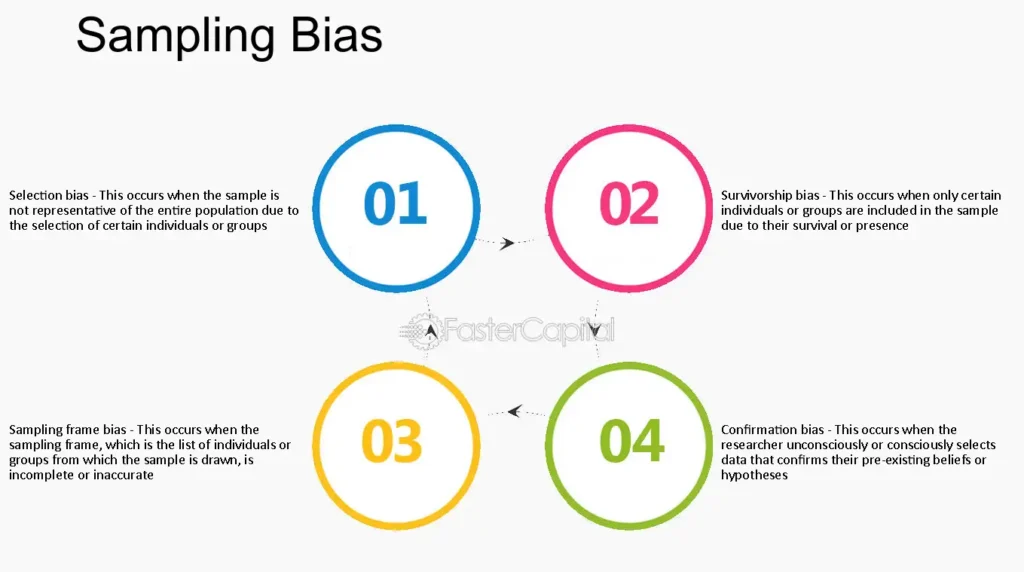
In today’s data-driven world, online surveys have become indispensable for market research and
public opinion studies. Yet, behind the convenience of rapid data collection lies a persistent
challenge: sampling bias. Just as Twitter is beleaguered by spam and fake accounts, online
panels—if not carefully managed—can suffer from representation issues that compromise data
quality.
The Challenge of Sampling Bias
Sampling bias occurs when certain segments of the target population are systematically over‐ or
underrepresented. For instance, convenience sampling may inadvertently favor individuals who
are more digitally active or have a specific socioeconomic profile, skewing the survey results.
Researchers have long noted that even well-established panels can fail to capture the full
spectrum of opinions if they do not accurately reflect the diversity of the general population. One
study on sampling bias in COVID-19 research found that convenience samples often display
more positive dispositions toward preventive measures compared to more representative samples
pmc.ncbi.nlm.nih.gov
Panel Representativeness: Why It Matters
Representativeness is critical for drawing meaningful conclusions from survey data. An online
panel that does not mirror the target population may lead to erroneous insights and misinformed
business decisions. For example, if a panel disproportionately includes younger, tech-savvy
respondents, the findings may not accurately represent the opinions of older or less digitally
engaged demographics. Research comparing cross-national online panels has demonstrated that
representativeness can vary significantly across different waves of data collection, underscoring
the need for continuous panel validation
academic.oup.com
Strategies for Overcoming Bias
While sampling bias is an unavoidable challenge—much like the inevitability of spam on social
media—there are robust strategies to mitigate its impact:
- Unbiased Sample Sourcing: Instead of relying on a single source, leading research firms now source respondents from multiple panels. This multilayered approach minimizes the risk of any one panel’s inherent bias dominating the study. For instance, some studies recommend multi-sourcing as a way to introduce protective layers against systematic bias, ensuring a more balanced sample.
- Quota Sampling and Stratification: Setting demographic quotas based on known population benchmarks is a proven method for enhancing representativeness. Stratification enables researchers to weight responses so that key demographic groups are proportionately represented, even if initial recruitment is skewed.
- Continuous Panel Refreshment: Maintaining an accurate panel requires constant monitoring and updating. By periodically validating panel demographics against current population data, researchers can detect shifts in composition and correct for them in real time.
- Mixed-Mode Data Collection: Combining online surveys with telephone or in-person interviews can help reach respondents who might otherwise be excluded from digital panels, thereby reducing noncoverage bias.
What This Means for Market Research?
In market research, ensuring the integrity of your data is paramount. The same way Twitter’s
issues with spam haven’t diminished its overall influence, the presence of some bias in online
panels does not render them useless. Instead, it calls for innovative and layered approaches to
data collection and validation. At Laconic Research, we integrate advanced quota sampling,
continuous panel refreshment, and multi-sourcing strategies to safeguard against sampling bias.
Our proprietary panels span key international markets—including North America, EU5,
Australia, and South America—ensuring that our data is both rapid and representative.
As one peer-reviewed study concludes,
“balancing the sample through stratification and
continuous monitoring is essential for maintaining data quality in online surveys”
While challenges remain, ongoing innovations in panel management are paving the way for
more reliable and actionable insights. In today’s fast-paced market environment, partnering with
a research firm that is committed to methodological rigor can make all the difference in turning
raw data into real-world impact.
How Laconic Research Stands Apart?
At Laconic Research, our proprietary panels are built across key international markets—North
America, EU5, Australia, and South America. Our approach integrates rigorous quota sampling,
continuous panel validation, and advanced weighting techniques. This multilayered strategy
ensures that our data remains pristine and truly representative of the intended population. By
combining the speed of online data collection with robust quality controls, we offer global
research initiatives a reliable, quick-turnaround solution for primary research data.
Conclusion
Addressing sampling bias and ensuring panel representativeness are essential for obtaining
actionable insights from online surveys. While academic studies continue to refine methods like
covariate adjustments and mixed-mode sampling
https://pmc.ncbi.nlm.nih.gov/articles/PMC9638233/, practical solutions are already in place.
Laconic Research’s commitment to maintaining diverse, validated panels means that our clients receive data that is both fast and trustworthy. In today’s fast-paced market, partnering with a data
provider that prioritizes methodological rigor is key to making informed decisions.
Would you like to learn more about our approach to overcoming sampling challenges or explore
our case studies? Reach out today, and let’s ensure your research is built on a foundation of
accurate, representative data.